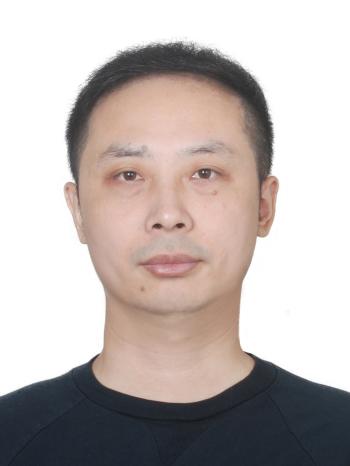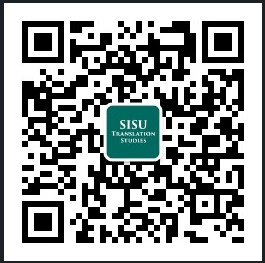
潘峰,上海外国语大学翻译研究院研究员、博导。研究方向包括中国特色话语翻译、语料库翻译学、国际传播、话语分析等。
ORCID iD:https://orcid.org/0000-0002-4174-2233
学术成果
中文发表|Publications in Chinese
1. 潘峰. 2025. 融通中外视域下新时代中国特色话语对外译介策略研究[M].武汉:武汉大学出版社.
2. 李鑫、潘峰、管新潮. 2025. 外交口译中报道动词的介入偏移——基于语料库的历时研究[J].外语电化教学,(2):47-54.
3. 潘峰、盛丹丹. 2021.记者招待会汉英口译中的规范及选择[J].外语教学理论与实践,(1): 115-125.
4. 潘峰. 2020.记者招待会汉英口译中模糊限制语的应用研究[M]. 北京:知识产权出版社.
5. 潘峰、李鑫. 2017.记者招待会汉英口译中的搭配、语义韵与意识形态研究[J].中国外语,14(6):112-119.
6. 潘峰、黑黟. 2017.新闻发布会汉英口译中的政府形象构建——以人称代词we的搭配词为例[J].外语与外语教学,(5): 45-51.
7. 潘峰、李鑫. 2017.记者招待会汉英口译中的性别差异:以插入语I think和I believe为例[J].外语学刊,(5): 37-42.
8. 潘峰. 2016.《翻译:跨学科研究》述介[J].外语教学与研究, (3): 473-477.
9. 胡开宝、潘峰、李鑫. 2015.基于语料库的记者招待会汉英口译研究[M].北京:外语教学与研究出版社.
10. 潘峰. 2015.《翻译与语言教育:教学法探索》评介[J].外语与翻译,(3): 93-96.
11. 潘峰、胡开宝.2015.语料库口译研究:问题与前景[J].语言与翻译,(2):55-61.
12. 潘峰. 2014. 基于语料库的汉英会议口译中范化现象研究[J].外国语文, (6): 144-150.
13. 潘峰. 2014.基于语料库的汉英会议口译中模糊限制语的应用研究[J].山东外语教学, (4): 24-29.
14. 潘峰. 2013.基于语料库的汉英会议口译中some的应用研究[J].解放军外国语学院学报, (2):95-100.
英文发表|Publications in English
15. Li, T. & F. Pan*. 2025. Constructing diplomatic discourse. Frontiers in Psychology, (16): 1-9. (Corresponding author)
16. Huang, Y & F. Pan*. 2025. International faculty in East Asian higher education: theory and reality. Asia Pacific Journal of Education, 1-4.
17. Pan, F. 2024. Interlingual Readings of Political Discourse: Translation, Interpreting and Contrastive Analysis. The Journal of Specialised Translation, (42):283-288.
18. Huang, Y & F. Pan. 2024. Digitalization and digital competence in educational contexts - a Nordic perspective from policy to practice. Asia Pacific Journal of Education, 1-5.
19. Pan, F., Y. Fu & T. Li. 2024. Institutional translators’ mediation of CPC Work Reports diachronically through personal pronouns: A corpus-based discourse analysis approach. Perspectives, 32(5): 924-941.
20. Pan, F. & X. Wu. 2024. Mapping intellectual structures and research trends of Translation Studies: A bibliometric analysis from 2007 to 2021. Perspectives, 32(4), 736-757.
21. Meng, L. & F. Pan*. 2022. Using corpora to reveal style in translation: The case of The Song of Everlasting Sorrow. Frontiers in Psychology, (13): 1-12. (Corresponding author)
22. Pan, F. & B. Wang. 2021. Is interpreting of China’s political discourse becoming more target-oriented?– A corpus-based diachronic comparison between the 1990s and the 2010s. Babel, 67(2): 222-244.
23. Pan, F. & T. Li. 2021.The retranslation of Chinese political texts: Ideology, norms, and evolution. Target, 33(3): 381-409.
24. Li, T. & F. Pan*. 2021. Reshaping China’s image: A corpus-based analysis of the English translation of Chinese political discourse. Perspectives, 29(3): 354-370. (Corresponding author)
25. Pan, F., Kyunghye Kim & Tao Li. 2020. Institutional versus individual translations of Chinese political texts: A corpus-based critical discourse analysis. The Journal of Specialised Translation, (34): 51-77.
26. Pan, F. 2020. Norms and norm-taking in interpreting for Chinese government press conferences: A case study of hedges. In Kaibao Hu & Kyunghye Kim (eds.), Corpus-based Translation and Interpreting Studies in Chinese Contexts: Present and Future. Cham: Palgrave Macmillan, 89-111.
27. Pan, F. 2020. Interpreters vs Machines: Can Interpreters Survive in an AI-Dominated World? International Journal of Communication, 14: 8-10.
28. Pan, F. 2019. Making way in corpus-based interpreting studies. Across Languages and Cultures, 20(1): 147-151.
29. Pan, F. 2019.Perspectives on retranslation: Ideology, paratexts, methods. International Journal of Communication, 13: 3008-3011.
30. Pan, F. 2019. Translation: The basics. Perspectives, 27(5): 778-780.
31. Pan, F. 2019. Hybrid Englishes and the challenges of/for translation: Identity, mobility and language change. International Journal of Communication, 13: 5053-5056.
32. Pan, F. & B. Zheng. 2017. Gender difference of hedging in interpreting for Chinese government press conferences: A corpus-based study. Across Languages and Cultures, 18(2): 171-193.
33. Pan, F. 2016. Psycholinguistic and Cognitive Inquiries into Translation and Interpreting. Babel, (3):516-520.
教材与课程建设|Textbooks
1. 理工院校英语专业核心教材:阅读教程2,李菁(主编). 上海:上海外语教育出版社,2021;
2.主讲课程“信息技术与语言服务”获批2022年度湖北省级一流本科课程(唯一成员)
科研项目|Grants
2025年度浙江省哲学社会科学重点研究基地“浙江大学中华译学馆”一般项目(25zhyxg003),主持;
2022年度国家社会科学基金青年项目“政府记者会口译在英文媒体的话语再现与中国形象评估研究”(22CYY056),主持(结项优秀);
2022年度华中科技大学人文社会科学重大原创性成果培育项目(2022WKFZZX026),主持;
2022年度中央高校基本科研业务经费项目“我国政治话语翻译规范及国际接受的历时描写研究”(2022WKYXQN004),主持;
2019年度中央高校基本科研业务经费项目“基于语料库的中美政治话语对比研究”(2019WKYXQN011),主持;
2017年教育部人文社科青年项目“基于语料库的政府记者会口译中人际意义的重构研究”(17YJC740043),排名第三;
教书育人获奖
2023.12 “国才杯”英语写作竞赛全国决赛银奖指导教师;
2023.11 “国才杯”英语写作竞赛湖北省金奖指导教师;
2023.07 “全国口译大赛”湖北省级复赛三等奖指导教师;
2023.06 华中科技大学2023届本科生优秀毕业论文指导教师;
2023.05 华中科技大学2023年“青年五四奖章集体”(集体奖);
2022.11 “国才杯”英语写作竞赛湖北省一等奖指导教师;
2021.11 “国才杯”英语写作竞赛湖北省一等奖指导教师;
2021.05 华中科技大学教师教学竞赛二等奖;
2020.11 “国才杯”英语写作竞赛湖北省一等奖指导教师;
2019.11 “国才杯”英语写作竞赛湖北省一等奖指导教师;
2019.06 华中科技大学2019届本科生优秀毕业论文指导教师;
翻译与对外传播实践
2025年哈尔滨第九届亚洲冬季运动会官方新闻团队专家/学生实习指导教师;
2023年成都第31届世界大学生夏季运动会官方新闻团队专家/学生实习指导教师
科研获奖
2022.12 中国翻译协会跨文化交流研究委员会年度优秀论文二等奖;
2018.01 获湖北省翻译协会优秀成果(论文类)一等奖
社会兼职|Memberships of committees
中国英汉语比较研究会语料库翻译学专业委员会理事
中国语料库研究与应用联盟理事
同行评审|Peer review
期刊: Target; Translation Studies; The Translator; Translation and Interpreting Studies; Perspectives; Meta; Critical Discourse Studies; Revista Signos; Language Sciences; Journalism; Humanities and Social Sciences Communications; Frontiers in Psychology; Interpreting and Society; Corpus-based Studies across Humanities
出版社: Routledge; Palgrave Macmillan
国家社会科学基金 通讯评审
教育部学位中心 通讯评审
US News世界最佳大学排名全球学术声誉 评阅人
泰晤士高等教育(THE)世界高校排行榜全球学术声誉评阅人
ROUND世界大学排名(RUR)年度国际学术声誉 评阅人


